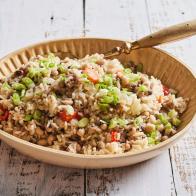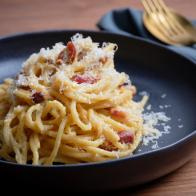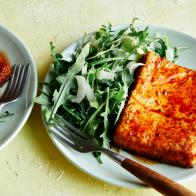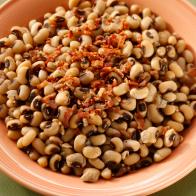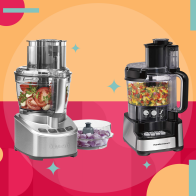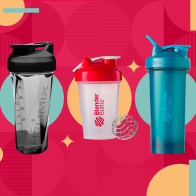6 Surprising Foods That Can Boost Your Mood
Bring these into your rotation to support brain health.
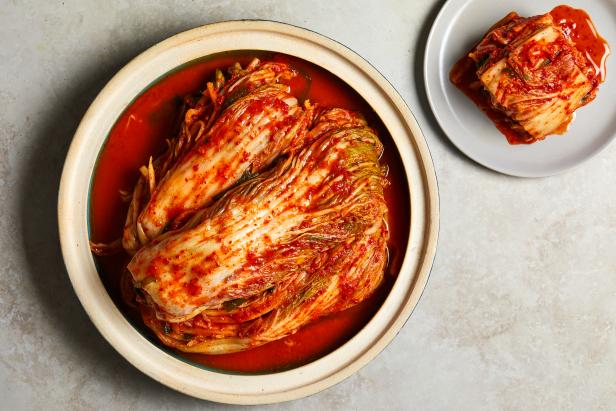
LUCY SCHAEFFER PHOTOGRAPHY / FOOD STYLING: JACKIE JI YOON PARK
Get the Recipe: Baechu Kimchi
Cravings for chocolate or ice cream can be a common reaction to stress. But lost appetite is also a symptom of anxiety and stress. While no one food improves mood, there is real science behind the idea that certain foods can help, some of which may be surprising.
“Brain and mental health research has exploded in recent years, and scientists are discovering how important the diet is for defending and even improving mental health,” says registered dietitian Deanna Segrave-Daly, author of the forthcoming The Smart Mediterranean Diet Cookbook: 101 Brain-Healthy Recipes to Protect Your Mind and Boost Your Mood.
Researchers have found that nutrition can play a role in the onset, severity and duration of depression. Nutrient-rich foods containing omega-3 fats, proteins, vitamins and minerals may help in depression management. “Antioxidants found in fruits, vegetables, herbs, and spices can help protect healthy brain cells, shielding them from damaging components in the body, such as stress hormones,” explains Segrave-Daly.
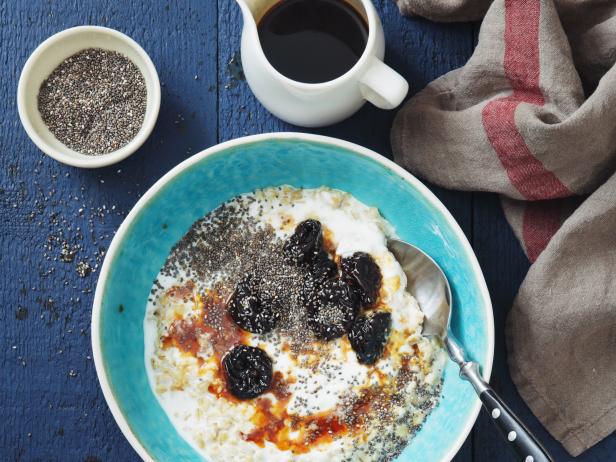
Eugene Mymrin/Getty Images
Prunes
Brain health is closely tied with gut health. When your gut doesn’t feel good, you often don’t feel good either. Some 60 million Americans suffer from mild to moderate constipation. Researchers at Johns Hopkins University uncovered evidence that suggests that irritation of the gastrointestinal tract (G.I.) may send signals to the brain and central nervous system that trigger changes in mood. Getting the right amount of fiber, can be an important part of gut health. While fiber- and antioxidant-rich berries often get a lot of (well-deserved) brain-health attention, prunes should too. Prunes contain both soluble and insoluble fiber which can help the gut microbiome, improve constipation and restore better G.I. health, which may improve mood. In addition, prunes have high levels of polyphenols, a type of antioxidant. These concentrated polyphenol antioxidants can help protect against brain cell DNA damage.
Eat More: Prunes on oatmeal, in savory meat and rice dishes, in whole grain salads and straight-up for dessert.
Chile Peppers
The capsaicin content of hot chile peppers is a powerful anti-inflammatory and makes chilies potent protectors of brain health. Chronic stress can harm brain cells, even causing parts of the brain to shrink. In animals, capsaicin has been shown to reduce depressive behaviors. Hot chili peppers can also enhance the effects of some antidepressants.
Eat More: Jalapenos or serranoes or Anaheim peppers tucked into eggs, or use dried chilies like Aleppo, Urfa, smoked paprika, crushed red pepper or shatta and harissa pastes in soups, stews and salads.
Tinned Fish
“Anti-depressant medications can vary in their effectiveness for different individuals, but fish and seafood can help nearly everyone,” notes Segrave-Daly. “Tuna, salmon and mackerel are conveniently found as tinned or canned fish. These fish are high in powerful omega-3 fatty acids, in the antioxidant selenium, and also in potassium, B vitamins and other nutrients that may help boost mental health.” People who eat fish on a regular basis are less likely to have depression than their peers. Dozens of studies over the last two decades have evaluated over 20,000 cases of depression, and the researchers suggest that eating about two servings of fish per week can reduce the risk for major depression. While the connection between fish and brain health may not be surprising, this fact might: the American Psychiatric Association has endorsed fatty acids in fish as an effective part of depression treatment.
Eat More: Canned or tinned fish as a tuna melt on toast and topped with cheese, on crackers or with whole grains.
Yogurt, Refrigerated Sauerkraut and Kimchi
Eating foods that contain probiotics — live microorganisms that have a beneficial effect when eaten—has been linked with less depression. In a 2019 study of 26,000 Koreans, those who ate the most fermented dairy foods and fermented vegetables had fewer symptoms of depression than those who didn’t eat probiotic foods regularly. Other studies have reported similar associations. The mechanism for this positive effect may be that probiotics help increase secretion of serotonin and other “feel good” neurotransmitters.
Eat More: Yogurt on everything, especially in savory ways like with chili peppers as yogurt cools the heat in your mouth! Eat refrigerated sauerkraut or kimchi.
Olive Oil
Extra-virgin olive oil is rich in plant phenolic compounds that may counter inflammation in the brain. The brain health connection with olive oil is fairly well-known, but the amounts used in some research may not. In Israel, scientists conducted a double-blinded, placebo-controlled study and found that people with symptoms of major depression who consumed about 1.5 tablespoons of extra-virgin olive oil a day had significant improvement. In the “Sun Project,” researchers looked at 10,000 middle-aged adults in Spain and found that those who consumed more olive oil had a lower risk of depression.
Eat More: Extra-virgin olive oil. Use it as your main cooking oil. Dip fresh bread into it or drizzle it on yogurt and sprinkle with a touch of salt.
Some Animal Protein
Without enough tryptophan, serotonin can’t cross the blood-brain barrier and get into the brain. Thus, in order to produce serotonin and other neurotransmitters, the body requires a continuous supply of tryptophan, along with another amino acids like tyrosine which is a building block of dopamine. Meat and chicken contains plentiful amounts of tryptophan and tyrosine and to a lesser degree so does edamame, fish, milk, pumpkin seeds, oatmeal, eggs, peanut butter and other protein-containing foods. In addition, eggs are high in the nutrients lutein and zeaxanthin which are important for brain health. The authors of this study point out that getting the right amount of amino acids from protein sources along with other sources of good nutrition is one of the most budget-friendly way to manage depression.
Eat More: Vegetables along with smaller servings of animal protein foods; together they may be helpful to boost mood.
Bottom Line: To help improve your mood and even manage depression, nutrition can be a powerful tool. While no one food may show big results, a total diet approach can help. Fruits and vegetables can be fresh and local, dried, frozen or canned. Olive oil is a good main fat. Try to eat spices and herbs, whole grains, beans and legumes, nuts and seeds, fruits and vegetables daily or often. Serve seafood a few times a week, along with fermented foods, eggs along with some poultry and meat and infrequent sweets. That’s eating with your brain and your mood in mind.
Serena Ball, MS, RD is a registered dietitian nutritionist, culinary instructor, and mom of five children. She blogs at TeaspoonOfSpice.com and is the author of the best-selling The 30-Minute Mediterranean Diet Cookbook, Easy Everyday Mediterranean Diet Cookbook and the newly-released The Sustainable Mediterranean Diet Cookbook. Follow her @TspCurry on Instagram.
Related Content:
